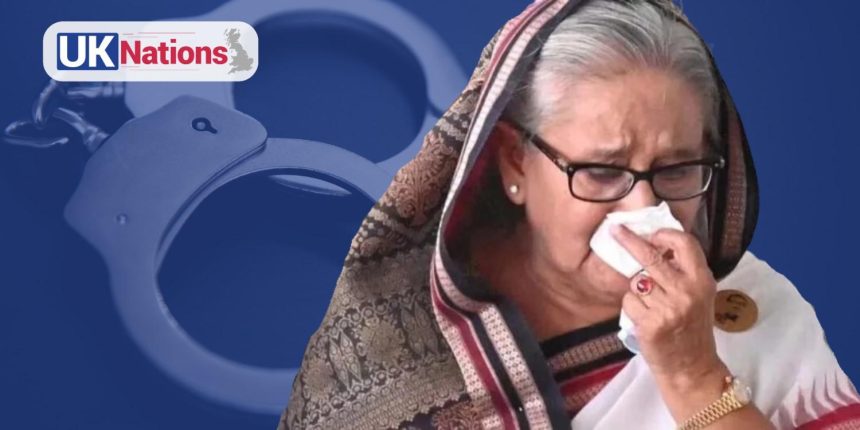In Dhaka, Bangladesh, a special court of law, the Islam prosecutor, represented a petition against the country’s former prime minister. The court issued arrest warrants on Thursday against Sheikh Hasina and 45 other political leaders, including some of her close companions. They were charged with crimes against Humanity in student-led protests in July and August.
“Sheikh Hasina was leading the group of those who committed murders, massacres and crimes against humanity in student protests”, said the prosecutor in the court of law.
According to the Interim Health Ministry, “More than 10,000 innocent people lost their lives because of Hasina’s open rivalry against the ex-prime minister”
Prosecutor BM Sultan Muhammad represented the Dhaka-based International Crime Tribunal under Noble Laureate Muhammad Yunis, “Bangladesh’s interim leader issues immediate arrest warrants against Sheikh Hasina in the result of two petitions submitted by the prosecutor Islam”. He further added that “Ghulam Mortuzza Majumdar, the head of the tribunal, ordered arrest warrants in the presence of noble judges.”
He also said by phone “First, the tribunal accepted our petition against Sheikh Hasina alone. But then we presented our second petition in front of the tribunal, asking to arrest 45 other people including some aides of Sheikh Hasina for the crimes against Humanitarian. The second petition also got accepted by the tribunal.”
Groups of human rights accused the Ex-Prime Minister of using excessive force against students, a charge Hasina denied from.
The student-led protests first began with a demonstration, asking the government to abolish its practice of reserving civil service jobs for the relatives of army and war veterans, before spiralling into a huge protest demanding the resignation of Sheikh Hasina. These student-led protests are one of the largest protestors that happened in Bangladesh’s history.
After weeks of protests and killing of innocent people, and in August Hasina resigned from the seat of PM and fled to India. Noble Peace Prize winner Muhammad Yunus replaced her and now running the Interim government of Bangladesh.
Sheikh Hasina has not made any public appearances after leaving Bangladesh. The 77-year-old former PM was last spotted at India’s Military Airbase in Delhi after causing 5 weeks of brutality in protests. Her presence in India caused infuriation in Bangladesh which caused the annulment of her diplomatic passport. India and Bangladesh have an ongoing Bilateral Extraordinary Treaty which could theoretically enforced her to return and face all criminal charges.
However, in the treaty, “it is also mentioned that extradition might be cancelled if it includes a political character.” Muhammad Tajul Islam, the chief prosecutor of the tribunal earlier said in an interview that “They would seek help from the Interpol, if necessary to get Hasina back in Bangladesh”.
He also added that “right now, Hasina is facing more than 100 cases on her name including one filed for crimes against humanity.”
According to the United States of Bangladeshi Agency, Touhid Hussain (Bangladesh’s Foreign Affairs Minister) said in an interview on Thursday that “the government should try and take necessary steps to bring back Hasina.” He also added that “Hasina and 45 other accusers are ordered to appear in the court on November 18, 2024.” according to a local newspaper “The Daily Star.”
Muhammad Ynuis’s Interim government has reconstituted the judges’ panel and prosecution team after taking over the charge. Islam was appointed as the new chief prosecutor; he was also the leader of the judges’ panel that prosecuted the cases of the right-wing leader of “The Jamaat-e-Islami” Party, also involving the charges for crimes against Humanity during 1971’s independence war against Pakistan.
In 2010, It was Hasina’s government created the deeply argumentative ICT to inquire about the murders during the 1971’s independence war.
Several cases against Sheikh Hasina for forecasting the “massacre and killings” of protestors are being represented and investigated by the court.




